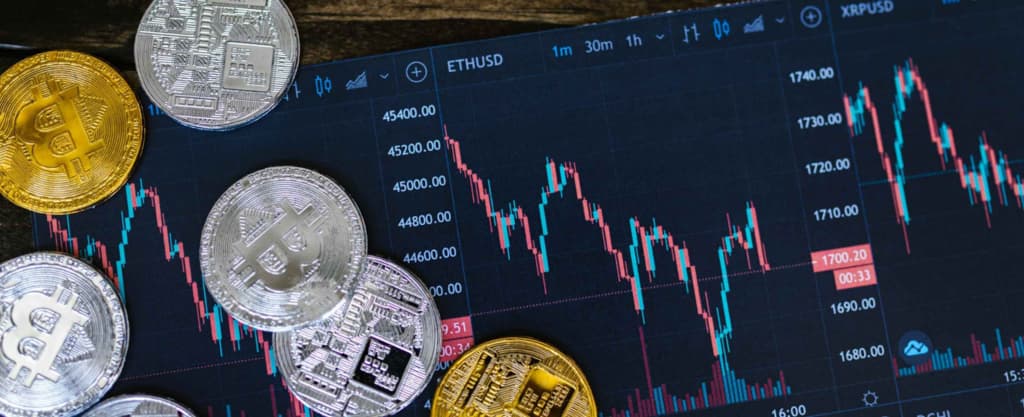Cryptocurrency trading operates around the clock, every day of the year—there are no closing hours. This fact is a boon for those who find themselves captivated by the study of cryptocurrency charts or the constant fluctuations in the crypto markets.
While cryptocurrency trading hours extend far beyond those of the traditional stock market, it’s important to note that the specific hours can vary depending on your chosen cryptocurrency exchange. Delve into the details below to gain insight into the world of crypto trading, its timing, and how to participate.
Understanding Crypto Trading
If you have any prior experience with different types of markets, including the stock exchange, you likely already possess a solid grasp of how cryptocurrency trading functions. Most individuals engage with this market through cryptocurrency exchanges, where the buying and selling of assets occur.
These exchanges simplify the trading process by displaying real-time values for various cryptocurrencies (the specific cryptocurrencies available on a given exchange may differ). They also facilitate connections between traders and investors, enabling them to buy, sell, and trade. Although investors can still spend considerable time analyzing cryptocurrency charts, an exchange streamlines the overall trading procedure. Therefore, for most end users, it closely resembles the process of buying or selling stocks.
When Does Crypto Trading Commence?
Given that the crypto markets are continuously active, crypto trading has no specific starting or ending time. Investors and traders have the freedom to engage in crypto trading via an exchange or brokerage at their convenience.
It’s worth noting that while the markets are open 24/7, not all times offer the same level of liquidity or trading partners. Nevertheless, it remains a 24-hour market.
Are There Time Constraints in Crypto Trading?
Despite the similarities between crypto exchanges and platforms that enable traditional asset investments, there are some distinctions, one of which is the concept of time limitations—or, in other words, the hours during which transactions are executed.
In the case of assets such as stocks, bonds, and ETFs, transactions occur during the market’s opening hours and, to a lesser extent, during after-hours trading. Generally, this spans from 9:30 am ET to 4 pm ET, Monday through Friday, with after-hours trading extending from 4 pm ET to 8 pm ET.
Conversely, certain assets can be traded 24 hours a day. The foreign exchange (forex) market serves as an example, where currency swaps transpire throughout the week, Monday to Friday. Similarly, the crypto markets are much more lenient with their trading hours, as they never truly close.
Does the Timing of Your Trades Affect Crypto Fees?
Although crypto markets never close, the timing of your trades can influence the associated trading fees. This stems from market activity levels, as conducting transactions requires network resources. Network participants must validate trades on blockchain networks, and if numerous traders attempt transactions simultaneously, it can lead to congestion.
Consequently, you might encounter higher or lower transaction fees (commonly referred to as “Ethereum gas fees”) when trading during peak hours. Conversely, fees may decrease during less active periods, such as late at night. It’s worth noting that strategies exist to minimize these fees.
On the other hand, periods of high trading volume generally result in increased market liquidity. This means more participants and, in general, more market activity. This can have both positive and negative implications, a factor that crypto investors should consider when selecting a time to trade.

Crypto Trading Hours vs. Stock Market Hours
The stock market adheres to specific operating hours—9:30 am ET to 4 pm ET, Monday through Friday—remaining closed on weekends and holidays.
In contrast, the crypto markets operate continuously. However, this does not imply that there are no advantageous times to trade, as the number of traders and overall market liquidity can fluctuate. Nonetheless, access to crypto markets is always available.
Hence, you can access real-time crypto price updates, expand your portfolio with additional coins, or fine-tune your crypto day-trading strategies at unconventional hours, including weekends and holidays.
Does the Global Market Impact Crypto Trading?
The global market does exert influence over crypto trading, although the extent of this relationship is still being studied. While crypto operates to some extent as a separate entity from other trading markets, there are interconnections, evidenced by fluctuations in investment portfolios.
In 2022, we observed this phenomenon firsthand as a broader market downturn spilled over into the crypto markets, resulting in what became known as the “crypto winter” of 2022. Additionally, the collapse of major crypto companies like FTX in late 2022 had repercussions in global markets, leading to financial losses for some investors. This, in turn, likely influenced their investment decisions, creating a ripple effect throughout the markets.
Pros and Cons of Non-Stop Crypto Trading
The continuous nature of crypto markets has its advantages and disadvantages. For instance, during periods of lower market activity, particularly in Bitcoin, crypto exchange liquidity can be affected, potentially leading to greater price volatility. Conversely, the all-hours availability of the market makes it more convenient for research and executing trades at one’s leisure.
Pros of 24/7 Crypto Trading
There are several benefits associated with crypto markets that are always open. These include:
- Convenience for traders;
- Greater potential returns due to a larger market and increased liquidity;
- Access to markets at any time and from anywhere.
Cons of 24/7 Crypto Trading
Conversely, there are potential drawbacks to the non-stop nature of crypto markets, such as:
- Some exchanges and platforms may restrict market access during specific times;
- Heightened risks and increased Bitcoin or other crypto volatility on particular days and times;
- Lack of regulated market hours, which means traders might miss significant market movements.

Impacts of Non-Stop Crypto Trading on Institutions
The non-stop nature of crypto trading has implications for institutions, including banks and exchanges.
Unlike the stock market, which takes daily and weekend breaks, crypto trading continues unabated. Consequently, there are periods within the 24-hour day when banks and exchanges are effectively closed, resulting in slower and less efficient money movement than during regular business hours.
This time discrepancy can lead to delays. For instance, if a crypto trader attempts to deposit funds into their exchange account for a trade at 2 am ET on a Sunday, the funds won’t actually move until the next business day. This potential delay could introduce friction into the markets.
In summary, the misalignment between the standard operating hours of many institutions and the non-stop nature of crypto markets can impact market dynamics.
Weekend Crypto Trading
Crypto trading on weekends is no different from trading on weekdays. Remember, the market never closes. However, it’s important to note that crypto markets tend to exhibit increased volatility on weekends. In fact, crypto values often experience declines during weekends due to several key factors:
- Reduced trading volume: Many individuals take weekends off, including crypto traders. Consequently, the volume of trades decreases. With lower volume, executed trades, especially larger ones, can exert a disproportionate impact on the markets compared to periods of higher trading volume;
- Margin trading: Numerous traders engage in margin trading, meaning they borrow funds to execute trades. When prices drop, it can trigger a “margin call,” necessitating the repayment of loans. However, with banks closed on weekends, this process can become more challenging, potentially exacerbating declines in crypto values;
- Hourly disparities and liquidity: Banks remain closed on weekends, while crypto markets continue to operate. This can lead to challenges for traders attempting to deposit funds into their crypto exchange accounts, limiting market liquidity and potentially introducing additional systemic and chaotic elements into weekend crypto trading.
When Is the Optimal Time to Buy and Trade Crypto?
As previously discussed, certain times and days tend to be more favorable for crypto traders when executing trades. While the best times and days to trade crypto can vary depending on individual preferences, research indicates that professional traders are typically more active during weekdays.
Historically, Monday has often yielded the highest returns for traders, followed by Friday and Saturday. Additionally, data suggests that market activity peaks around 12 pm ET. However, it’s crucial to emphasize that past performance and trends do not guarantee future results. There is no assurance that trading during these specific days or hours will translate into larger or any returns for individual traders or investors. Moreover, these trends are likely to evolve over time.
In Conclusion
Crypto markets offer an unpredictable, non-stop journey, operating 24 hours a day, 365 days a year. While the markets never close, it’s important to be aware that certain times may present more advantageous trading opportunities.
Frequently Asked Questions
What are the trading hours for cryptocurrency?
Cryptocurrency trading occurs continuously, 24 hours a day, 365 days a year. Crypto markets are always open, allowing traders and investors to execute transactions at any time.
When is the best time to buy cryptocurrency?
The optimal time to purchase cryptocurrency depends on individual investor preferences. However, markets generally exhibit higher liquidity during weekday business hours. It’s worth noting that transaction fees may also be higher during these times.
Can I trade cryptocurrency on weekends?
Yes, you can trade cryptocurrency on weekends. The crypto markets remain open 24/7, allowing trading on weekends, holidays, and any other day.




